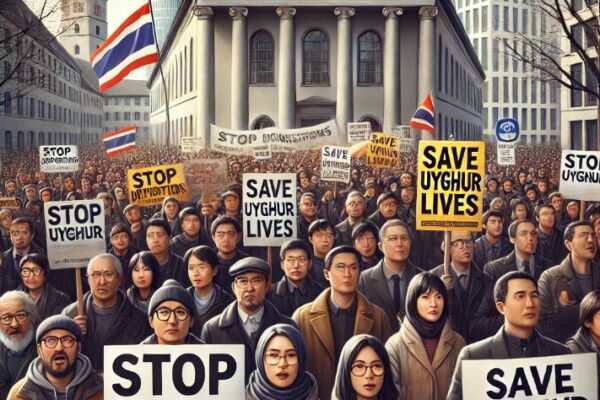China, Mekong countries agree to combat scam centers, arms trafficking
Read RFA coverage of this topic in Burmese. The six Mekong River countries are working together to combat online scamming and arms dealing in the interests of their security, China’s embassy in Myanmar said, as authorities renew efforts to tackle a problem that is causing growing alarm across the region. The rescue of a Chinese actor and several other victims this month from an online scam center in eastern Myanmar has shone a spotlight on the criminal gangs running fraud, money-laundering and human trafficking operations from some of the more lawless corners of the region. The scam centers proliferated in Myanmar, Cambodia and Laos after the COVID-19 pandemic disrupted casinos. Thousands of people have been lured by false job offers and then forced to work defrauding victims online in complexes often run by ethnic Chinese gangsters, human rights groups say. China, which is also home to many of the victims of the scammers, has been organizing action to tackle the problem with its southern neighbors, most recently at a meeting in the city of Kunming, in China’s Yunnan southern border province. “The operation brings together the law enforcement resources of various countries and is an effective cooperative force in the fight against telecommunications fraud and arms smuggling in the region,” China’s embassy in Myanmar said in a statement on Tuesday. “All parties unanimously agreed that regional security and stability were effectively protected,” it said. In 2025, members of the Lancang-Mekong Integrated Law Enforcement and Security Cooperation Center – China, Myanmar, Thailand Laos, Cambodia and Vietnam – will begin the second phase of an operation against the criminals, the embassy said. It did not give details of what it would entail. The Myanmar National Democratic Alliance Army hands over 337 telecom and internet fraud suspects to Chinese police on Oct. 7, 2023.(Kokang News) RELATED STORIES Scammers lure jobseeking Hong Kongers to Myanmar from Japan, Taiwan Is Laos actually tackling its vast scam Industry? Myanmar border militia emerges as nexus in regional scam network From August to December, Operation Zin Yaw resulted in a collective 160 cases cracking down on telecommunications fraud, in which more than 70,000 criminals were arrested and 160 victims were rescued, the embassy said. Myanmar authorities have said the large majority of suspects detained in raids are from China. China can provide “effective protection” against both arms smuggling and online fraud, the embassy said. The recent abduction and rescue from an eastern Myanmar enclave on the Thai border of Chinese actor Wang Xing, and model Yang Zeqi, has attracted media attention across the region and raised public alarm about safety. Thailand has seen a rash of group tour cancellations for the upcoming Lunar New Year and its government has promised action to protect its economically important tourist industry. The leaders of militias loyal to Myanmar’s junta and the operators of online scam centers announced this month that they had agreed to stop forced labor and fraud after coming under pressure from Thailand and the Myanmar military, sources close to the militia groups said. “The threat posed by the scam gangs is large – if you read the newspapers you know – so something needs to be done,” said Aung Thu Nyein, a member of the Institute for Strategy and Policy Myanmar think tank. Myanmar’s exiled parallel National Unity Government said in a statement on Monday it and other anti-junta groups would work with neighboring countries to suppress the scam centers. Translated by Kiana Duncan. Edited by RFA Staff. We are : Investigative Journalism Reportika Investigative Reports Daily Reports Interviews Surveys Reportika


